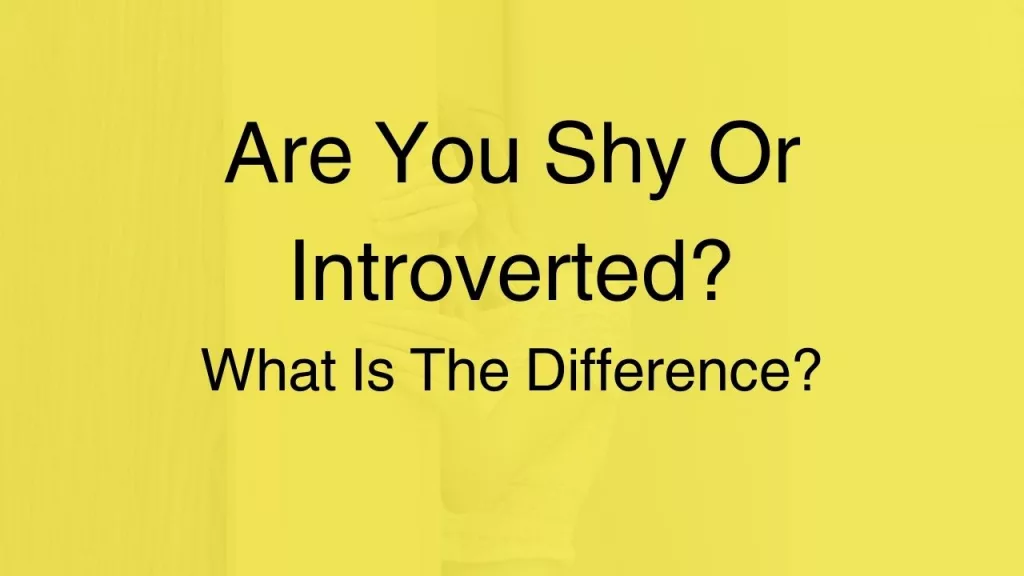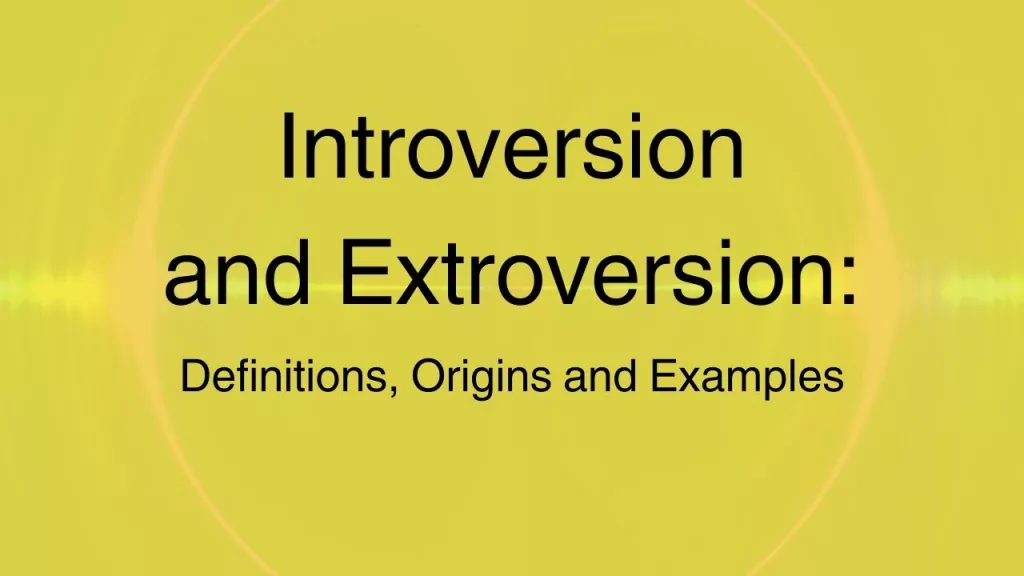Are you shy or introverted, or both? To answer this question, you need to understand what each term means, what they do not mean, and how they can affect your behaviour.
What Is the difference between shyness and introversion?
Shyness is an emotional response to social discomfort, whereas introversion is a personality type. The two terms are unrelated.
There is, however, a common misconception that they are synonymous. This is likely because they tend to share certain qualities.
Let’s explore this in more depth!
What is shyness?
Shyness is an emotion. It is characterised by being nervous and timid in the company of other people, such as in a group or one-to-one situation. The emotion can also result in physical sensations like blushing, shaking, or breathlessness.
Experiencing shyness can make individuals avoid certain situations because they feel unsure of themselves and are sometimes scared of the environment. This can link closely to feelings of social anxiety.
The causes of shyness are complex. However, a person’s genetics and life experience can both play a role. Despite this, learning to control this emotion with time and practice is very possible.
What is introversion?
Introversion is a personality type. One held by between one-third to one-half of the world’s population (depending on the study you read). Introverts gain energy from spending time alone, in quiet and peaceful environments, or out in nature. They prefer calm, minimally stimulating surroundings and tend toward their inner self, thoughts, and feelings.
There are several common traits shared by introverts. These include being reflective, self-aware, independent and sensitive to external stimuli.
According to the National Library of Medicine, Introversion has around 50% genetic causation. However, research and debate continue as to the specific genes involved. Changing your personality type (for example, from introversion to extroversion) is not possible. However, if you learn to understand your personality, you can better control your weaknesses and leverage your strengths.
Can introverts be shy?
Some studies show that introverts are more likely to experience shyness compared to their extroverted and ambiverted peers. However, this does not mean that they are synonymous terms.
Personality type does not pre-determine emotions. Although less common, both extroverts and ambiverts can experience shyness.
Are you shy or an introvert?
There are various questions you can ask yourself to determine whether you are shy or an introvert, or both.
- Do you fear spending time with a big group of people?
- Do you get overly nervous before a meeting or group conversation?
- Do you feel tense when you’re around new people or those you don’t know well?
If you answered yes to the above, you will likely be shy.
- Do you feel drained after spending time with a big group of people?
- Do you often think and analyse your thoughts before speaking them to other people?
- Do you analyse situations or conversations long after they have ended?
If you answered yes to the above, you are likely an introvert.
If you answered yes to both of the above lists, you are likely shy and an introvert.
This is not an exhaustive list. However, I hope it acts as a helpful introduction to understanding your personality and emotions.
Common misconceptions:
Various misunderstandings surrounding introverts and shyness are prevalent in society. These include:
- Introverts are shy and socially inept:
In reality, introverts prefer solitude and quieter environments to recharge their energy, but they can still be confident and skilled in social situations.
- Shyness equates to introversion:
Shyness is a temporary emotional response to social discomfort, while introversion is a personality trait.
- Introversion is a flaw:
Introversion is not a flaw. Plenty of strengths and positives are associated with the ‘quieter’ personality type. Introverts tend to excel in focused tasks and deep thinking and bring qualities such as thoughtfulness, empathy, and creativity to various aspects of life.
- Introverts lack social skills:
Introverts do not lack social skills. They simply have a different way of communicating. They prefer small groups and one-on-one conversations over large social activities.
Use your introversion to your strength:
As an introvert, you can use your unique skills and strengths to your advantage. The ability to focus, think deeply, solve problems and actively listen are invaluable in the professional environment. Other strengths include being:
- Empathetic
- Self-motivated
- Thoughtful
- Introspective
- Organised
It’s important to recognise and embrace your strengths as an introvert. These innate skills can allow you to stand out amongst your peers when understood and used to your advantage.
Conclusion:
Being shy and being introverted is not the same. Shyness is an emotion, and introversion is a personality type. Although they can present in similar ways, it’s important to understand the difference and know which category you fall into.
By embracing and understanding your personality type, you can form a greater appreciation for how you navigate the world and interact with others.
Is there anything you would add to this article?
Why do you think these two terms are still misunderstood?



